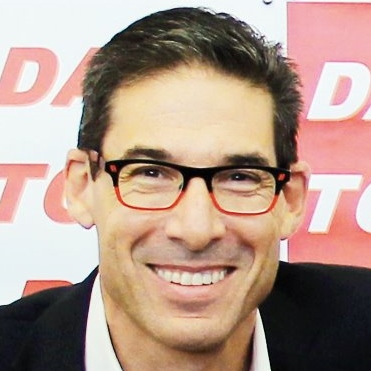
News

Sexual orientation can’t be learnt, inclusivity can
JOSEPH GERASSI
During my time as an educator, I have come to realise the critical importance of identity formation, and sexual identity in particular, for the healthy development of teenagers. When a young person is forming their sense of self (identity), they are establishing what it is that makes them distinctive. However, at the same time, they are also learning how to engage successfully with society. Teenagers whose identity conflicts with the expectations of their community often express feelings of deep isolation and loneliness, and a sense that they can never be themselves. This often leads to depression, which can lead to unhealthy behaviour, and in some cases, suicide.
While many Jewish teenagers manage to develop a healthy identity around their culture and religion, there are those that struggle with their sexual identity. Attending mainly Jewish schools, and being brought up in Jewish homes where their culture and religion are synonymous with that of their community, being comfortable with their Jewish identity is not difficult. They are taught and experience Jewish culture and religion from an early age. Many of their role models are Jewish, and they aspire to emulate these role models, whether they are members of their family, leaders in their community, or even friends at school. The community nurtures and prepares them, from an early age, to adopt an identity that is acceptable to the community.
Being heterosexual and gender normative is also taught in our community by the language that is used, and the expectations that are set. In the same way that we send our children to Jewish schools to learn about culture, and expect them to attend synagogue to learn about religion, we dress our children in gender-specific colours, give them gender-specific toys, and expect them to adopt gender-specific behaviour, to teach them gender-specific norms. This in an attempt to get them to lead “normal” heterosexual lives.
For those whose sexuality (gender and sexual orientation) conform to these norms, their identities are not in conflict with the expectations of our community. However, for those who struggle with their sexuality, they end up living a life that for many is dark and shameful, causing depression, which often leads to harmful conduct.
So, how do we ensure that all of our children grow up confident, proud, and accepted as contributing members of our community? We have to start by acknowledging that unlike culture and religion, gender and sexual orientation is not something that can be learnt, but rather something that we are born with, and that we cannot change. Asking someone to change his or her sexual orientation is tantamount to asking someone to change the colour of his or her hair or eyes. You can dye your hair or use colour contacts in your eyes, but all you are really doing is masking the real colour.
Research has shown that one of the root causes of homophobia, as well as depression among homosexuals, is the failure of one’s true feelings and instincts to match the stereotypes of what one “should” be and feel. Helping teenagers to get in touch with this concept will allow them to expand their thinking, and test their assumptions when challenging their own and others’ gender identity and sexual orientation.
This won’t be easy in our community, where we are so used to conforming to the expectations of those who manage to see the world only through their own lived experiences. However, a good start would be for our leaders, including our educational and religious leaders, to engage with LGBTQ+ (Lesbian, Gay, Bisexual, Transgender, Queer/questioning) organisations in order to plan a way forward, which would result in our community affirming and taking care of teenagers who struggle with their sexual identity instead of, at best, pretending that they don’t exist.
In 2018, the Commonwealth’s Chief Rabbi, Ephraim Mirvis, published the first ever guide for orthodox Jewish schools to improve the wellbeing of lesbian, gay, bisexual, and transgender pupils. In his introduction, Mirvis wrote, “Our children need to know that at school, at home, and in the community, they will be loved and protected regardless of their sexuality or gender identity.” He pointed out that when homophobic, biphobic, and transphobic bullying is carried out with “justifications” from Jewish texts a “major desecration of G-d’s name” is caused.
The time has come for our community to take the lead from Mirvis, and accept communal responsibility for looking after all of our children, no matter their sexual identity.
- Joseph Gerassi is the executive head of Redhill School, and a former headmaster of King David High School Victory Park.




